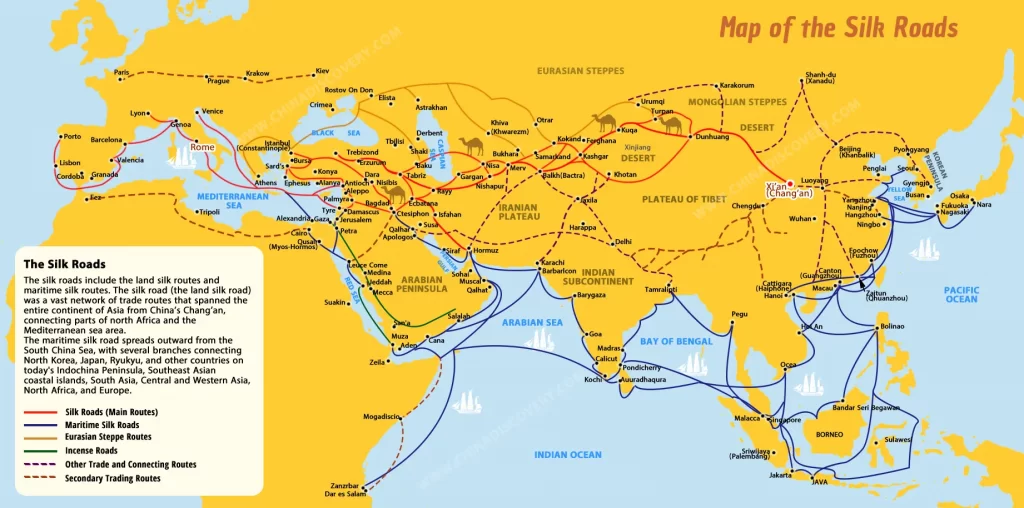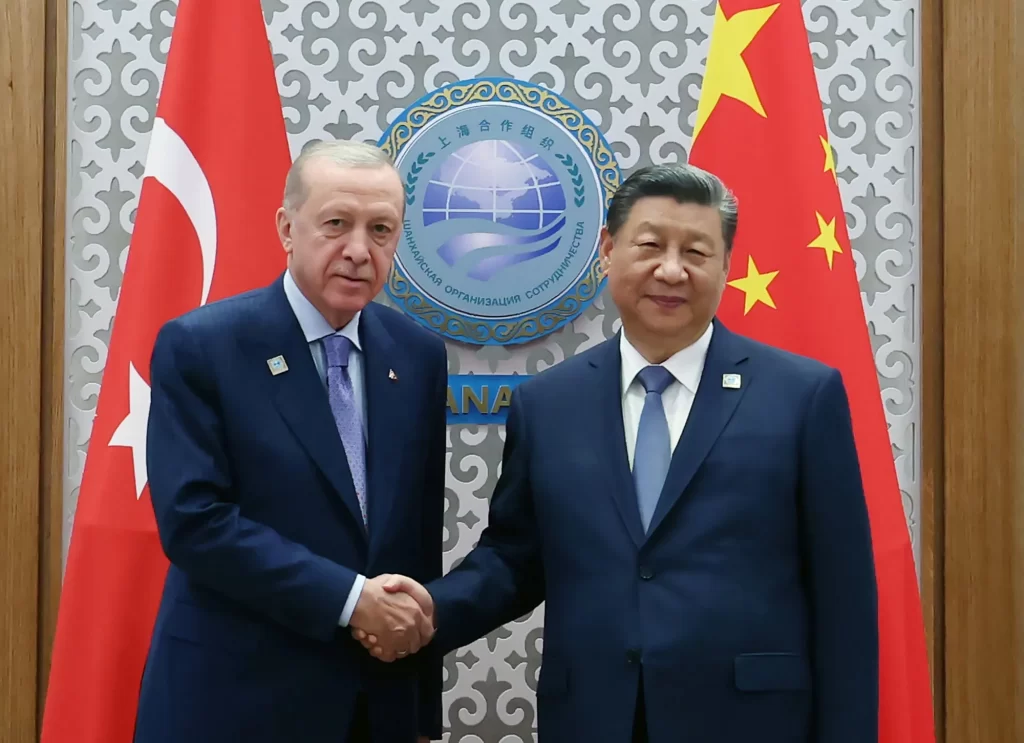(This article was written in English. Your browser might be translating it into your langauge. To read the original version, please select English.)
Turkey’s Role in China’s Belt and Road Initiative: A Strategic Advantage for the New Silk Road
Turkey Tribune explores Turkey’s unique position in China’s Belt and Road Initiative (BRI) and how this project holds the potential to reshape global trade. Positioned as a bridge between Asia, Europe, and the Middle East, Turkey has a critical role in the New Silk Road vision, providing significant leverage in this ambitious initiative.
Turkey’s Geographic and Economic Advantage
China’s Belt and Road Initiative, launched in 2013, aims to create an extensive infrastructure network that links multiple continents, facilitating trade and connectivity. Given its geographic position, Turkey stands as a natural transit hub for goods flowing between Asia and Europe. Its proximity to key markets in Europe, the Middle East, and North Africa (MENA) regions makes Turkey an essential player in China’s strategy to streamline trade and transportation routes.

The Middle Corridor: Turkey’s Contribution to BRI’s Overland Route
The Middle Corridor Initiative, a Turkish-backed route within the BRI, aims to establish an overland path stretching from China to Europe. Unlike other routes that depend heavily on sea transportation, the Middle Corridor leverages Turkey’s infrastructure and provides a shorter and more secure overland option. This route also offers Turkey increased influence over the flow of goods and strengthens its standing in regional trade dynamics, particularly as the BRI network expands.
Enhanced Rail and Infrastructure Projects
Turkey has heavily invested in enhancing its rail networks to connect seamlessly with the BRI. Key infrastructure projects like the Baku-Tbilisi-Kars railway are examples of Turkey’s commitment to streamlining the BRI’s Eurasian routes. This railway not only connects Turkey with Central Asia but also positions the country as a primary link between the East and West. Turkey’s role as an infrastructural hub benefits both the BRI and Turkey’s economic ambitions, encouraging foreign investment and supporting job creation.
Turkey’s Economic Incentives and Investment Opportunities
The BRI offers Turkey substantial economic incentives. By becoming an integral part of the trade routes under the BRI, Turkey stands to attract increased foreign investments, particularly in transportation and logistics sectors. The initiative also opens up new markets for Turkish products, especially in Central Asia and Eastern Europe, regions that are becoming more accessible due to the improved infrastructure network.
China’s Investments in Turkey: A Mutual Economic Boost
Chinese companies are already investing in Turkish infrastructure, which strengthens the economic relationship between the two nations. Projects such as the Kumport Terminal in Istanbul’s Ambarlı Port exemplify how China is contributing to Turkey’s modernization efforts in return for logistical support in BRI-related projects. These partnerships reflect a win-win scenario, where Turkey gains infrastructural advancements while China secures an important foothold for its global trade ambitions.

Navigating Political Challenges and Maintaining Strategic Independence
Although Turkey’s participation in the BRI brings numerous benefits, it also comes with potential challenges. Aligning with China’s strategic vision may raise concerns among Turkey’s Western allies. Additionally, maintaining a balanced relationship with both China and its traditional Western partners requires diplomatic finesse, especially as Turkey asserts its independent stance in global geopolitics.
Ensuring Economic Gains without Compromising Sovereignty
Turkey must navigate carefully to maximize its benefits from the BRI without compromising its sovereignty or alliances. By adopting a diversified foreign policy approach, Turkey can leverage the BRI’s economic advantages while continuing to engage with the European Union and NATO. This balanced approach strengthens Turkey’s position as an independent regional power, allowing it to benefit from Chinese investments without alienating its Western allies.
The Future of Turkey in the New Silk Road Vision
Turkey’s strategic participation in the BRI positions it as an emerging power in the global trade network. Through investments in infrastructure and careful navigation of political dynamics, Turkey is poised to play a leading role in shaping the future of the New Silk Road. As China’s project progresses, Turkey’s influence over Eurasian trade routes is likely to increase, granting it a stronger voice in both regional and global affairs.
A Balanced Path for Mutual Growth
In conclusion, Turkey’s role in the Belt and Road Initiative is more than a passive transit point; it is an active partner, bringing its infrastructure, economy, and strategic location into the fold. By maximizing its geographic and economic strengths, Turkey is creating opportunities for economic growth while maintaining its independence on the global stage. As the New Silk Road unfolds, Turkey’s involvement will continue to redefine trade connections, opening new doors for cooperation and mutual development.















